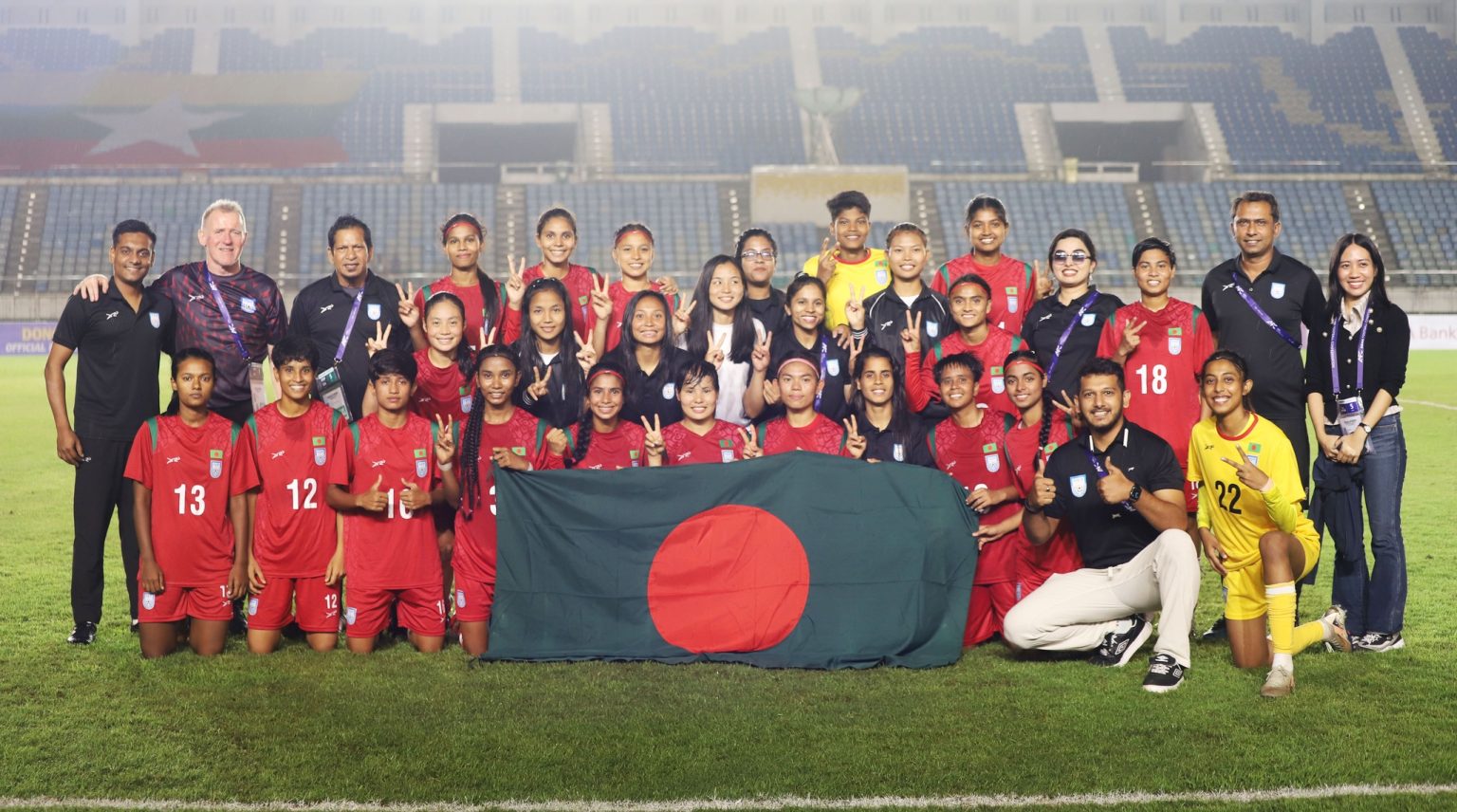The Bangladesh women’s football team has made history by qualifying for the final round of the AFC Women’s Asian Cup for the first time. It is a proud moment for the nation, not just a sporting milestone but the opening of new possibilities. However, the celebration of this achievement has become the subject of widespread criticism.
In a surprising decision, the Bangladesh Football Federation (BFF) scheduled a reception for the team at 2:30 in the morning, barely an hour after their arrival in Dhaka from Myanmar. The event is set to take place at the Hatirjheel Amphitheatre, located in the heart of the capital.
According to the BFF, the team will leave Yangon at 7:00 in the evening, reach Bangkok by 9:00, and board a connecting flight at 11:50 to arrive in Dhaka at approximately 1:25 in the morning. Just over an hour later, they are expected to attend a full-fledged ceremony in the middle of the night.
Although BFF has not issued an official explanation for this odd timing, officials have suggested that the decision was influenced by the tight schedule of two key players, Rituparna and Monika Chakma. Both are set to fly to Bhutan at 7:00 in the morning to take part in the local league.
This has prompted many to ask whether the reception could have been delayed until their return. Was it really necessary to stage a public event at such an inconvenient hour, especially for a team that would be exhausted from travel? Concerns over their rest, safety and the basic decency of offering them time to recover are being voiced loudly.
The BFF’s past handling of the women’s team does little to silence critics. In March 2023, the team was not sent to Myanmar for Olympic qualifiers due to alleged financial constraints. During a player revolt in January of this year, many were not even under contract. Wage payments have been irregular and, even today, top players earn just 55,000 taka a month.
After their SAFF Championship win, the BFF had promised a bonus of 1.5 crore taka. That money has yet to be delivered.
The inconsistency between promises and action raises doubts over whether this late-night reception is a genuine tribute or simply a rushed, image-driven display.
There are lessons the BFF has failed to learn. Last year’s open-top bus celebration after another SAFF victory turned into chaos. Players missed their meals, and during the 2022 celebrations, Rituparna suffered a head injury from a roadside billboard. She needed stitches and was taken to a military hospital for treatment.
The current situation could have been avoided with a simpler gesture. A brief welcome at Hazrat Shahjalal International Airport’s VIP terminal, with flower garlands, a symbolic cheque and a 15-minute programme, would have been enough. This would have allowed the players to rest and given Rituparna and Monika time to prepare for their trip to Bhutan.
Deeper issues continue to plague women’s football in Bangladesh. The last domestic league was held over a year ago and lacked proper structure. There are no other tournaments for women. The BFF has spoken of launching a franchise league and sending clubs to international competitions but has yet to follow through. Even Bhutan has fielded a club in the AFC Women’s Champions League, while Bangladesh has not.
There is also no dedicated nutritionist for the women’s team. Dietary planning, advanced nutritional support and consistent physical monitoring are missing. The coaching team, too, needs strengthening. Bringing in more international expertise such as a foreign assistant coach or a specialised goalkeeper coach could help the team reach higher levels.
Despite these shortcomings, the players have continued to excel. Under coach Peter Butler, a new and youthful squad has emerged and proven itself on the pitch. In the Asian Cup qualifiers in Myanmar, Bangladesh defeated Bahrain 7–0, Turkmenistan 7–0 and hosts Myanmar 2–1 to top Group C. Rituparna Chakma’s two goals against Myanmar secured a famous win over a team ranked 73 places higher in the FIFA standings.
They achieved this while battling internal problems and coaching controversies. Yet they rose to the occasion and brought pride to the nation.
The BFF must now shift its focus from symbolic events to real, structural changes. The players deserve rest, respect and long-term investment. They need safety, financial support, strong coaching staff and scientific facilities. The focus should be on sustained development, not tired gestures in the middle of the night.
The team has done its part with remarkable courage and commitment. It is time for the federation to match that with action.


